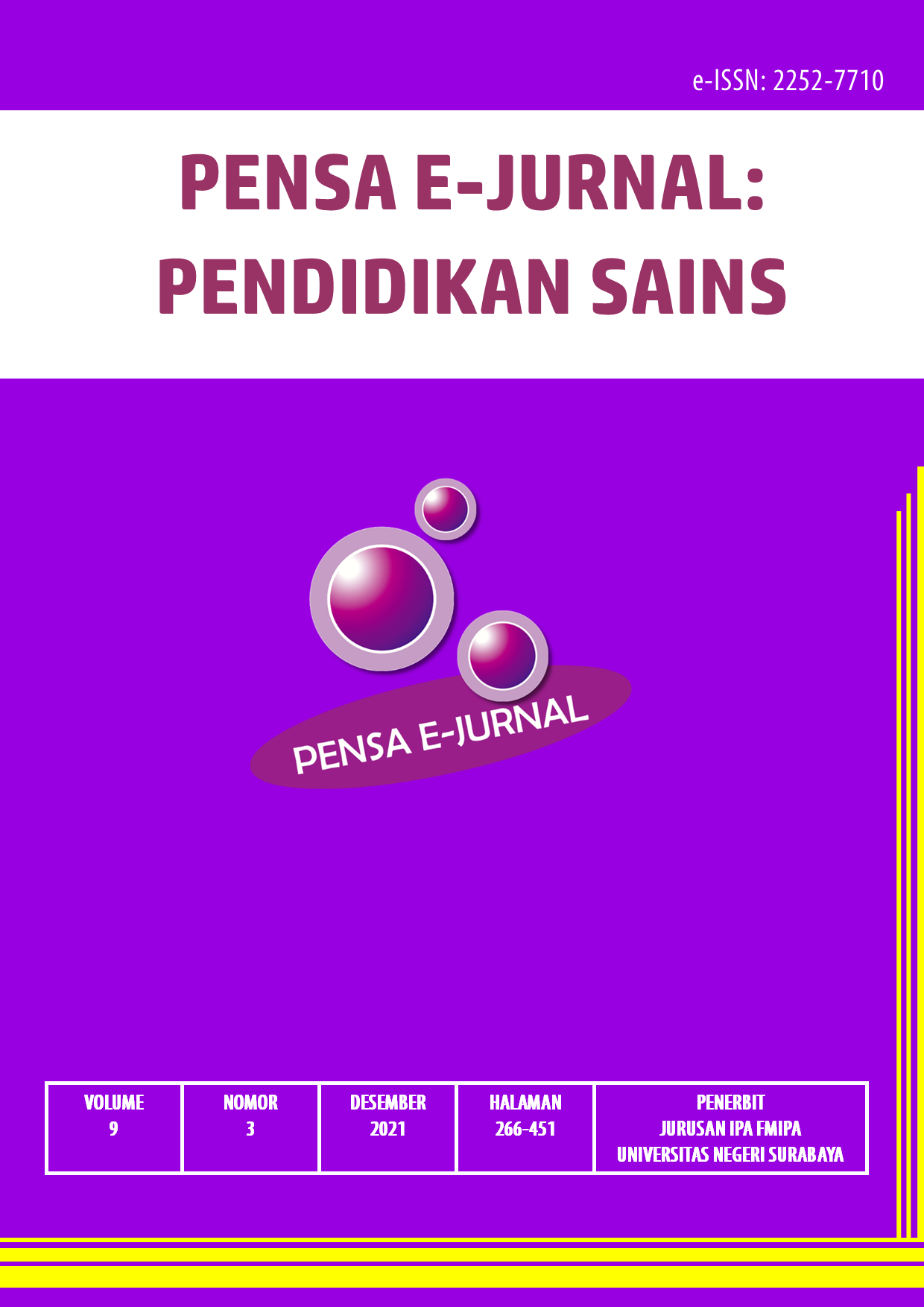UJI COBA EBOOK BERORIENTASI PROBLEM BASED LEARNING DALAM MATERI CAHAYA DAN ALAT OPTIK UNTUK MELATIH KEMAMPUAN BERPIKIR KRITIS
DOI:
https://doi.org/10.26740/pensa.v9i3.41045Keywords:
ebook, problem based learning, critical thinking skillDownloads
Download data is not yet available.
Downloads
Published
2021-12-02
How to Cite
Ristanti, E. W., & Budiyanto, M. (2021). UJI COBA EBOOK BERORIENTASI PROBLEM BASED LEARNING DALAM MATERI CAHAYA DAN ALAT OPTIK UNTUK MELATIH KEMAMPUAN BERPIKIR KRITIS. PENSA E-JURNAL: PENDIDIKAN SAINS, 9(3), 394–398. https://doi.org/10.26740/pensa.v9i3.41045
Issue
Section
Articles
 Abstract views: 581
,
Abstract views: 581
, PDF Downloads: 434
PDF Downloads: 434

















